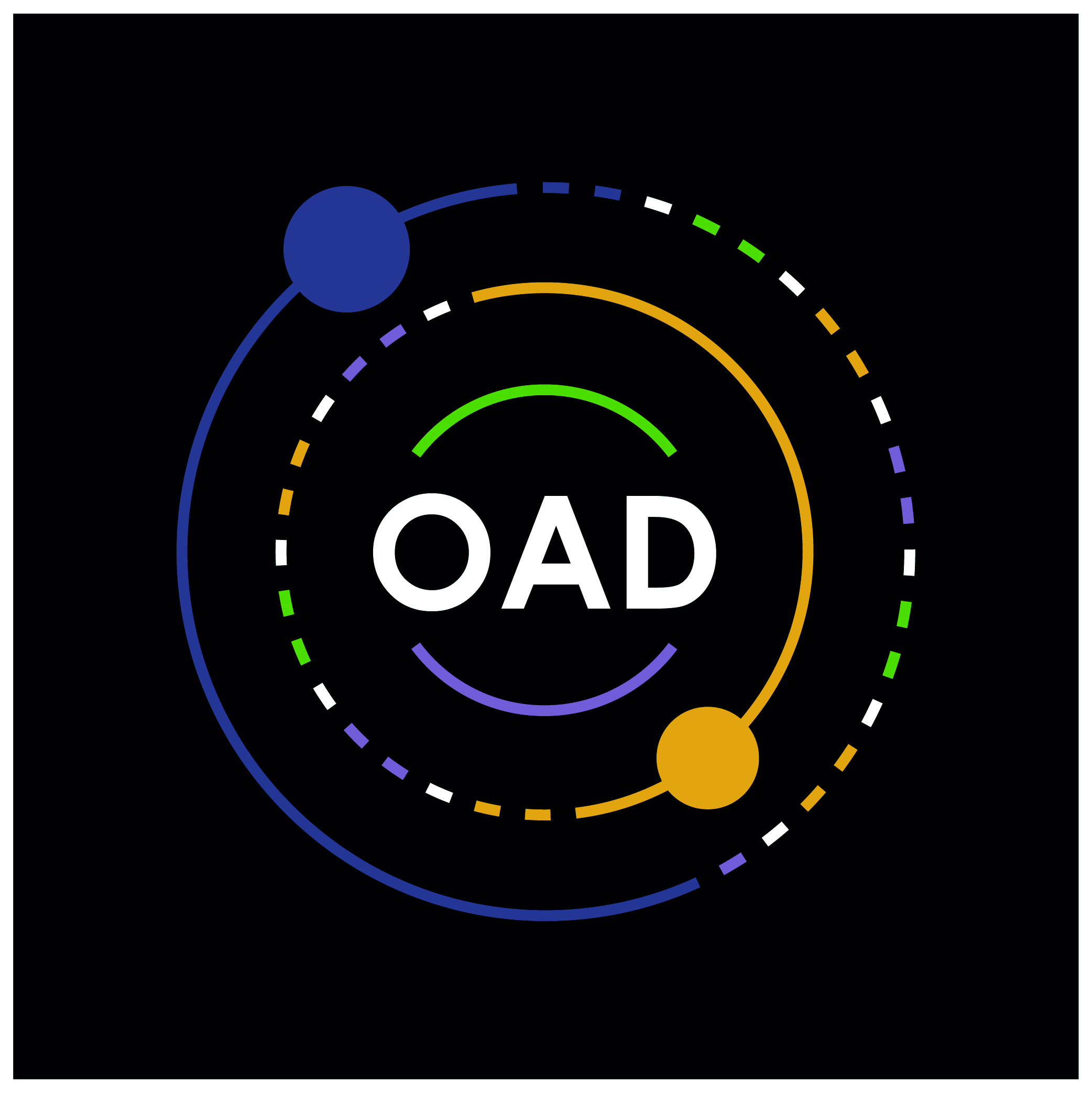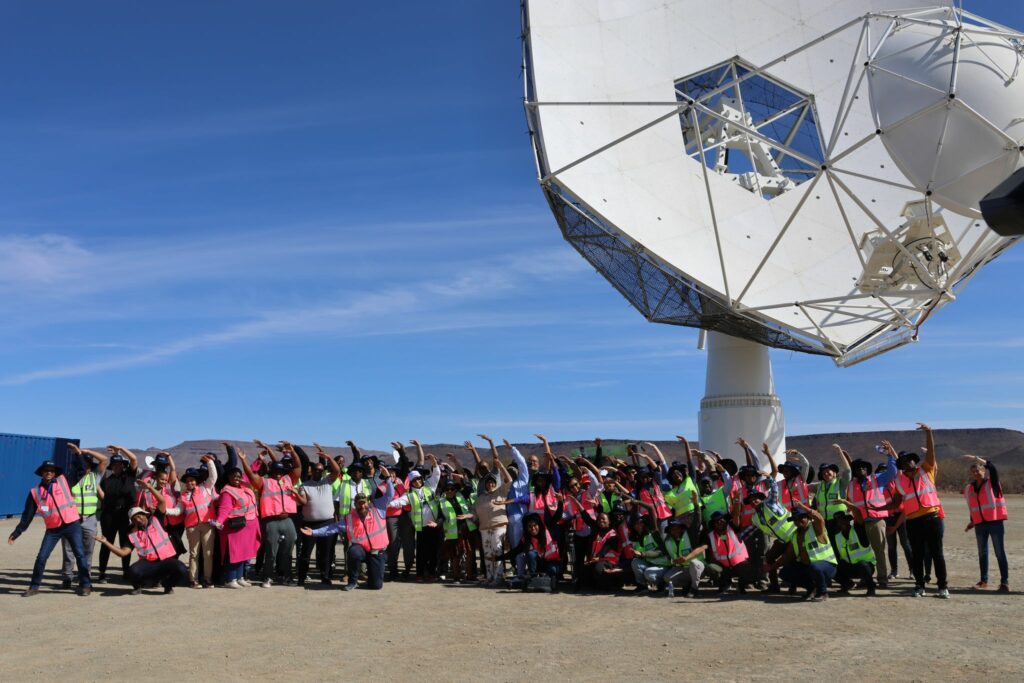Dr Charles Takalana and Dr Joyful Mdhluli from the OAD attended World Tourism Day 2024 celebrations in the town of Carnarvon, South Africa on 26-27 September 2024. World Tourism Day is celebrated annually on September 27 throughout the world as declared by the United Nations.
The two day celebration consisted of four events: two events hosted by the Department of Science and Innovation (DSI) with the South African Radio Astronomy Observatory (SARAO) and the other two Department of Tourism in collaboration with South Africa Tourism, the Northern Cape Department of Economic Development, Environment and Tourism, and its marketing agency the Northern Cape Tourism Authority.
On the first day, September 26th, the DSI hosted the Minister of Tourism for a visit to the Square Kilometre Array (SKA) site in Losberg. The delegation included the Minister of Tourism, deputy Minister of Tourism, MEC for Economic Development and Tourism, Executive Mayor of the Pixley Ka Seme District, Mayor of the Kareeberg Local Municipality, members of the Tourism sector, members of the media and various other stakeholders. During our visit to the SKA site, we toured the Karoo Array Processing Building (KAPB) and explored the antenna field, where we had the chance to view several key installations. These included the KAT-7, HERA, the OHB MeerKAT-plus, the MeerKAT launch antennas, and the first SKA-MID antenna. We also took the opportunity to capture a group photo with the SKA-MID antenna, which is currently under assembly, in the background.
On the first evening, the Department of Tourism hosted a welcoming cocktail ceremony. The event doubled as the venue for the National Lilizela Tourism Awards for the Northern Cape Province. Launched in 2013 by the Minister of Tourism, the Lilizela Awards celebrate the industry’s top performers, recognising and rewarding businesses that excel in providing world-class products and services. The SARAO Carnarvon Astro Guides were among the award recipients, honoured for their exceptional services, which include stargazing experiences infused with cultural astronomy storytelling.
On the second day, September 27th, SARAO hosted a Desert Golf Challenge, featuring a ceremonial tee-off and messages of support from the Minister of Tourism. Afterward, we gathered at Carnarvon Primary School to celebrate World Tourism Day. This year’s World Tourism Day celebration in South Africa marked its 30th anniversary in the town of Carnarvon. The theme, “Tourism and Peace,” highlighted the role of tourism in fostering understanding and harmony.
The event was a significant milestone for South African tourism, with the launch of the National Astro-Tourism Strategy. This is a joint initiative between the Department of Tourism and the Department of Science and Innovation (DSI). The initiative aims to position South Africa as a leading astro-tourism destination, leveraging its unique geographical advantage of dark and clear skies. The choice to launch the National Astro-Tourism Strategy in the Northern Cape Province was motivated by the fact that the Northern Cape is home to the largest Astronomy facilities in Africa: the Square Kilometre Array (SKA) and the Southern Africa Largest Telescope (SALT).
Minister of Tourism, Patricia De Lille, spoke at the event, highlighting the importance of utilising the natural and rich cultural assets of South Africa to create memorable and sustainable tourism experiences. She emphasised that tourism should not only entertain but also educate tourists and empower local communities. By promoting sustainable and inclusive tourism, the goal is to ensure that the benefits are widely shared and contribute to the overall development of the country.
Minister of Science and Innovation, Professor Blade Nzimande, highlighted the role of science and innovation in advancing tourism. He emphasised the potential of astro-tourism to create unique and sustainable experiences, attract international visitors, and inspire young people to pursue careers in science and technology.
The launch of the National Astro-Tourism Strategy marks a significant milestone towards using Astronomy as a tool for Economic Development. This aligns with the OAD’s Flagship 1 program; Sustainable, Local and Socio-Economic Development through Astronomy. The flagship focuses on how Astronomy can be used as a tool for socio-economic development, with one of the projects under the flagship being astro-tourism. The aim and mission of the project is to empower rural communities to harness the powerful resources of naturally dark skies and rich natural and cultural heritage to boost their local economies.
The OAD plays a significant role in the implementation of the National Astro-Tourism Strategy National Astro-Tourism Strategy with Kevin Govender as a member of the National Astro-Tourism Governance Body. The Governance Body is responsible for the roll-out of the Implementation Plan. The hosting of the IAU – General Assembly 2024 was one of the implementation milestones of the 2023/24 annual target. The National Astro-Tourism Strategy is currently open for public comments for the next 30 days before the implementation process is rolled out.
This event helped the OAD team build new relationships and strengthen existing ones with tourism stakeholders, which will be crucial for Flagship 1 initiatives.



